Montana Technological University Graduate School: Current Student Resources
Step 1: New Student Check-In ✓
Prepare to Come to Campus
-
Explore housing options (residence hall or apartment) → limited availability, apply early!
-
Buy a parking pass
-
Accept your Graduate School Canvas Course Invitation
-
Complete required training & forms (mandatory; added to Canvas your first semester)
-
-
Meet with your advisor
-
Discuss/finalize first-semester classes
-
Check degree requirements
-
Finalize assistantship paperwork
-
Orientation & Guides
-
Attend Graduate Orientation (first week of classes)
-
Review the Graduate Student Handbook
-
Track Graduation Deadlines
-
Bookmark this Graduate School webpage for all paperwork and information
Step 2: General Campus Info ✓
- Pick up your DiggerCard
- Apply for a Parking Pass
- Buy a Meal Plan (SUB)
- Purchase Textbooks
- Get keys from Physical Facilities
- Visit Student Health Services
- Review Insurance Information for Students
- Graduate School Library Orientation
- Student Life at Montana Tech
- Counseling at Montana Tech
Step 3: Academic & Research Forms/Info ✓
Course Credit Forms
For a Petition to Transfer Credit Form, Petition to Apply Credits Form, Petition to Reserve Courses Form, or Leave of Absence Form please contact gradschool@mtech.eduResearch Resources for On-campus Students
Step 4: Creating a Degree Plan ✓
Thesis Degree Programs
Graduate Program Form - Due second semester of graduate school
- Begin first semester; finalize second semester
- Is is intended to help you chart the course toward your degree, and serve as a memorandum of understanding between you and your advisor.
- Check minimum requirements for your degree in the Graduate School Catalog, and be sure to look up the specific requirements of your program.
Graduate Committee Appointment Form - Due second semester of graduate school
-
Appoint graduate school representative with advisor
-
Committee reviews your work & serves as mentors
-
Please see the Graduate Student Handbook for more information on the composition of committee members required when completing this form.
Writing Seminar (TC5160)
-
1-credit writing “bootcamp” (4 days)
-
Peer + instructor review of writing samples
-
Recommended before starting thesis writing
-
See your program entry in the Graduate School Catalog for additional technical seminar requirements for your degree.
Non-Thesis Degree Program Degree Fulfillment
MPEM- After 21 credits → Written exam, 40–45 min capstone presentation
MIHP
- Committee formed during IH 5986
- Signature Sheet documents oral/written exam
- Due by completion of 20 credits
Masters of Engineering
- Passing grade for ENGR 500 (1-credit final exam)
Exceptions & Forms
The Petition to Transfer Credit Form allows you to transfer a limited number of pre-approved classes. Please contact gradschool@mtech.edu for this form.
Graduate Student Resources
Travel Assistance Application Form
Need travel assistance? The Travel Assistance Application Form is intended for graduate students seeking financial assistance for academic or professional travel when other funding sources are unavailable or do not fully meet the need. Applications are reviewed by the Graduate Student Advisory Board (GSAB) President and the Graduate School.
Graduate Student Advisory Board
The Graduate Student Advisory Board (GSAB) hosts meeting during the semester and kindly requests your attendance! Please consider attending this meeting to learn how GSAB aims to supplement your learning and experience as a Graduate Student at Montana Tech.
Discuss:
Graduate Student Experience: Share your experiences and ideas
Learning Opportunities: Discover resources available to you
Graduate School Events:Get the latest updates on future events and activities
Advisory Board Participation: Learn how you can serve and make your voice heard
✓ Regular Check-Ins
Master of Science (MS)
-
Meet with your committee at least once per year.
-
Committees provide mentoring and resources toward your degree.
-
See the Graduate Student Handbook for details on committee composition.
Doctor of Philosophy (Ph.D.)
-
The PhD combines advanced coursework with a research project (dissertation).
-
Register for:
-
Pre-exam dissertation credits (before candidacy exam)
-
Dissertation credits (after candidacy exam)
-
-
Dissertation credits may count toward full-time status and assistantship eligibility.
-
Finalize your advisor and thesis topic as early as possible (topic should align with your interests, your advisor’s, and funding availability).
-
Form your research committee early — they provide expertise, resources, and guidance.
-
Begin research promptly; meet regularly with your advisor and periodically with your committee.
📌 Check your program-specific handbook for course and program requirements:
📚 Examinations
Ph.D. Qualifying Examinations (QE)
-
Taken August after the 1st year.
-
Format: Proctored written exam, in coordination with Montana State University.
-
Preparation:
-
Consistent class attendance & good study habits.
-
Ask professors questions throughout the semester, not just before exams.
-
Form a summer study group (recommended).
-
-
Passing criteria and retake policies → see the Graduate School Handbook.
-
Exam format and study tips are updated periodically → check here for latest info.
Earth Science & Engineering (Ph.D.)
-
Taken at the end of the 4th semester.
-
Format:
-
Write an independent research proposal (must differ from your dissertation topic).
-
Oral defense before your committee.
-
Committee questions cover proposal + knowledge breadth in Earth Science & Engineering.
-
-
Preparation steps:
-
Confirm proposal topic differs from dissertation.
-
Write and submit proposal to committee.
-
Present proposal to committee.
-
Answer proposal-specific questions.
-
Answer broader Earth Science & Engineering questions.
-
Candidacy / Comprehensive Examinations
Materials Science (Ph.D.) & Earth Science & Engineering (Ph.D.)
-
Taken after QE.
-
Purpose:
-
Show you can design an original, creative research project.
-
Demonstrate effective communication (oral & written).
-
Establish a research plan + timeline, reviewed by committee.
-
Materials Science (Ph.D.)
-
Typically before start of 3rd year.
-
Format:
-
Written dissertation proposal.
-
Oral defense → open seminar + closed committee interview.
-
-
Best practices:
-
Schedule a pre-meeting with committee.
-
Give committee ≥1 week to review proposal.
-
After Passing the Exam:
-
You become a PhD Candidate.
-
Register for dissertation credits (for full-time status & assistantship eligibility).
-
Continue regular advisor and committee meetings.
-
Once milestones are completed, draft your dissertation and schedule defense.
📝 Required Paperwork
Submit to gradschool@mtech.edu after passing candidacy/comprehensive exam:
-
Results of Candidacy/Comprehensive Examination (all PhD programs)
-
Graduate Product Rubric (all PhD programs)
To Announce Your Exam, email gradschool@mtech.edu with:
-
Student Name
-
Degree Program
-
Academic Advisor
-
Type of Exam
-
Exam Date, Time, and Location
✓ Degree Applications
When to Apply: Submit the semester before you plan to graduate.
-
Example: If graduating in Summer but walking in Spring Commencement, submit at the beginning of the Spring semester.
Requirements for Submission:
-
All required signatures obtained.
-
Business fee paid in full.
- Application for Master of Science/Master of Engineering Degree
- Application for Master of Science/Master of Engineering Degree Update
- Application for Masters of Industrial Hygiene Professional Track Degree
- Application for Ph.D. Degree
✓ Graduation Requirements
To graduate, you must:
-
Submit your Degree Application (by deadline noted above).
-
Be on schedule to complete coursework as approved in your Graduate Program Form
-
Successfully complete your program’s final product requirement:
-
Thesis, Dissertation, or Publishable Paper → must meet Thesis Deadlines
-
OR successfully complete your non-thesis program requirements (per program handbook).
-
🎓 Graduation Regalia
Graduation regalia needs to be ordered with the Tech campus store no later than the first month of graduating term.
Example: If you are gradution in the Fall term them your regalia needs to be ordered with the Tech campus store no later than the first month of the fall term.
✅ Step 1: Write the Graduate Product
All graduate students must complete a graduate product (thesis, dissertation, publishable paper, or Program-Specific product).
Templates & Formatting
-
- ESE students → substitute “Earth Science & Engineering” for “Materials Science” on the title page.
Formatting Guidance:
-
Publishable papers → must be imported into the thesis template (effective Spring 25).
-
Add a footnote in the Introduction noting where the paper will be (or was) submitted.
-
Include submission info in acknowledgements.
-
-
Supporting data files may be submitted with the product → check with your department for formatting.
-
Submit a draft to gradschool@mtech.edu for a preliminary format check.
-
No deadline, but recommended with pre-defense copy.
-
Graduate School checks only for common formatting issues, format check is not in depth.
-
Review the Common Formatting Issues Guide before submission.
-
Non-Thesis Programs & Final Products
-
Master of Science Option B: Product → Completion of program requirements = final product.
-
Master of Project Engineering & Management (MPEM) → Written + oral presentation in MPEM 521 (final product).
-
Masters in Industrial Hygiene Professional Track (MIHP) → Final oral/written exam = final product.
-
Master of Engineering (MEng) → 1-credit final exam (ENGR 500) = final product.
✅ Step 2: Defend the Graduate Product
Who Must Defend?
-
Master of Science Option A (Thesis or Publishable Paper): Defense required.
-
Master of Science Option B (Product): Defense not required (unless advisor/department requires).
-
Non-Thesis Degrees: Defense not required (see program requirements).
Scheduling & Announcing the Defense
-
Must occur within Thesis Deadlines.
-
Schedule early → faculty have limited availability near semester ends & during summer.
-
Reserve a room via 25Live once committee agrees on date/time.
-
Email the following 2 weeks prior to gradschool@mtech.edu:
-
Student Name
-
Degree Program
-
Academic Advisor
-
Title of Defense
-
Date, Time, Location
-
Abstract
-
Zoom/Teams Link (if applicable)
-
At the Defense:
-
Committee evaluates your product & documents successful completion using required graduation forms.
Extensions:
-
Granted only in exceptional cases.
-
Submit a Petition to the Dean Form ASAP if unable to meet deadlines.
✅ Step 3: Finalize & Publish the Product
Revisions & Submission
-
Complete all required revisions from your committee.
-
Submit final version to the Graduate School.
-
Graduate School checks template compliance only (not full content review).
- Review Common Formatting Issues
Publication
-
Graduate School manages the publication process after graduation is confirmed.
-
Timeline: usually 1–2 months post-graduation (unless publication delay requested).
-
Where it will be published:
-
Thesis, Publishable Papers, Dissertations → Montana Tech Digital Commons + ProQuest
-
MS Option B Products → Montana Tech Digital Commons
-
Optional Hard Copies
-
Graduate School provides 1 library archival copy.
-
Departments/advisors may request additional copies.
-
Students can:
-
Order extra copies through the Thesis/Dissertation Copy Order Form
-
Or order directly from ProQuest (shipped to your address).
-
Graduation Deadlines ✓
-
Review all graduate product deadlines, defense deadlines, and the required Graduation Canvas course here.
-
Missing deadlines may postpone graduation.
-
If you cannot meet deadlines, submit a Petition to the Dean Form to gradschool@mtech.edu before the deadline.
-
Extensions are granted only in exceptional circumstances.
-
Required Graduation Paperwork ✓
All signatures must be completed and compiled for forms to be processed by the Graduate School.
Master of Science: Option A - Thesis/Publishable Paper
- Graduate Program Form and Committee Appointment Form - both pre-required due second semester of graduate school
- Results of Graduate Defense - supply to committee chair to obtain signatures after defense
- Graduate Product Rubrics (not required for on-campus IH) - supply to committee members to complete during defense
- Graduate Product Publication Agreement – obtain signatures after successful defense and complete product
- Graduate Checkout Form – obtain signatures after successful defense and complete product. Graduate School will sign once all graduation paperwork is received
- M.S. Thesis/Publishable Paper Signature Sheet - obtain all signatures after thesis/publishable paper is final and approved by committee
- Final thesis/publishable paper in pdf form
- Graduate Program Form and Committee Appointment Form - both pre-required due second semester of graduate school
- Graduate Product Publication Agreement
- Graduate Checkout Form - obtain signatures after product is complete and final. Graduate School will sign once all graduation paperwork is received
- Final product in pdf form
Ph.D.
- Graduate Program Form and Committee Appointment Form - both pre-required due second semester of graduate school
- Graduate Product Publication Agreement – obtain signatures after successful defense and complete product
- Graduate Product Rubrics - supply to committee members to complete during defense
- Results of Dissertation Defense - supply to committee chair to obtain signatures after defense
- Graduate Checkout Form – obtain signatures after successful defense and complete product. Graduate School will sign once all graduation paperwork is received
- Ph.D. Dissertation Signature Sheet - obtain all signatures after dissertation is final and approved by committee
- Final dissertation in pdf form
Master of Project Engineering and Management | Masters Industrial Hygiene Professional Track | Master of Engineering
- No other graduation paperwork is required
Post-Graduation Information ✓
Updating Address:
-
To change your diploma address after graduation → email enrollment@mtech.edu
Diplomas:
-
Mailing takes 3–5 months post-graduation.
-
For concerns, contact enrollment@mtech.edu
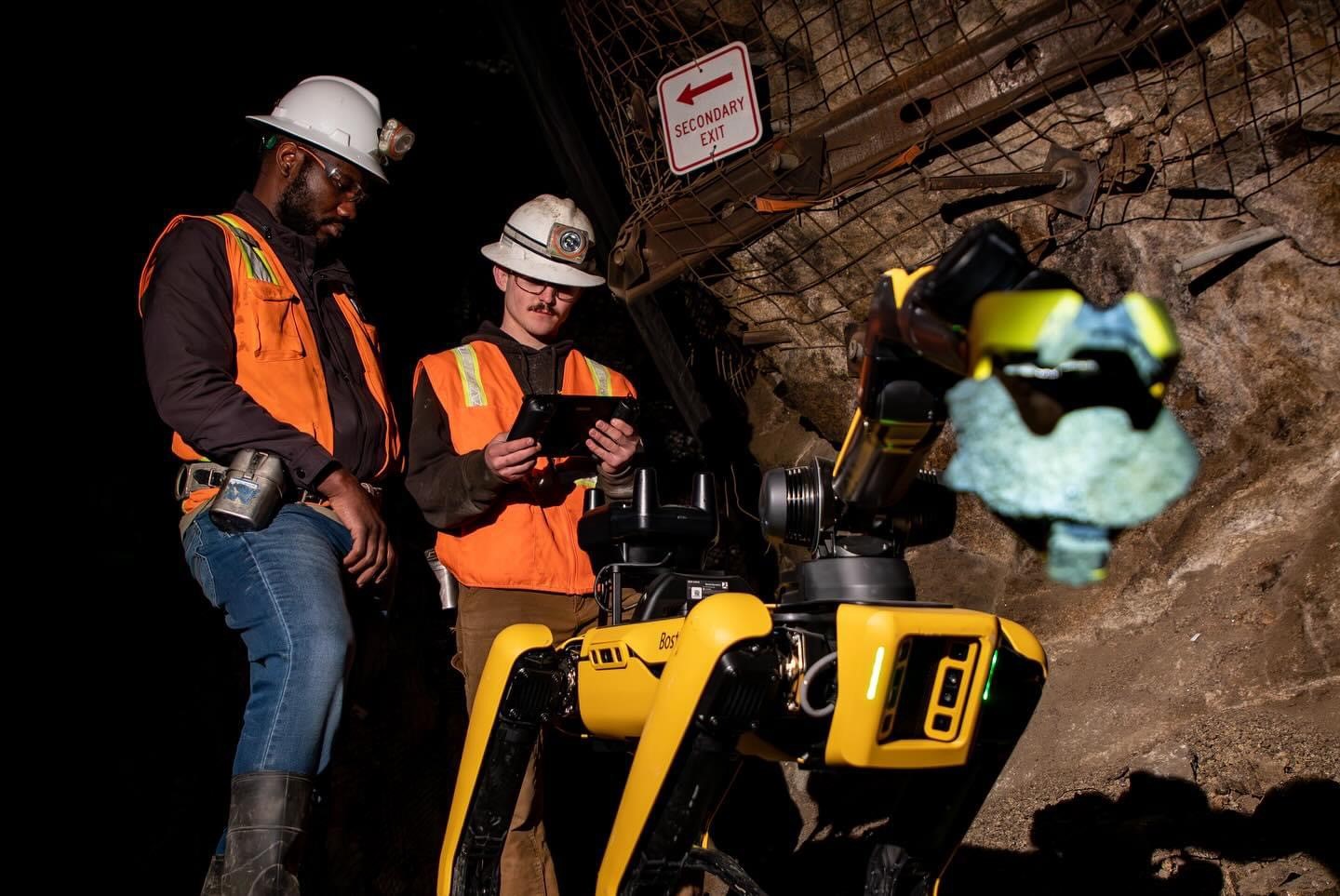
View Frequently Asked Graduate School Questions below.

Need travel assistance? This form is intended for graduate students seeking financial assistance for academic or professional travel when other funding sources are unavailable or do not fully meet the need. Two students are awarded per semester.
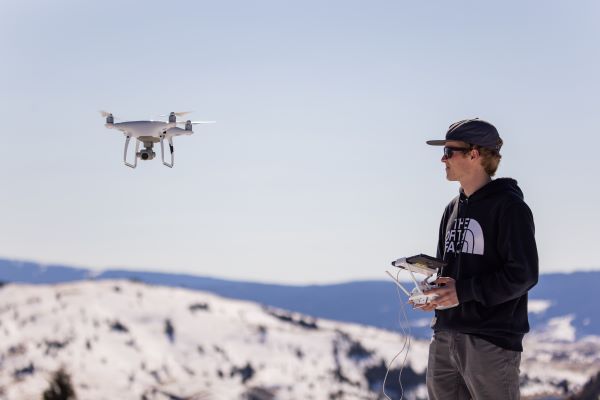
View all graduate school forms here.
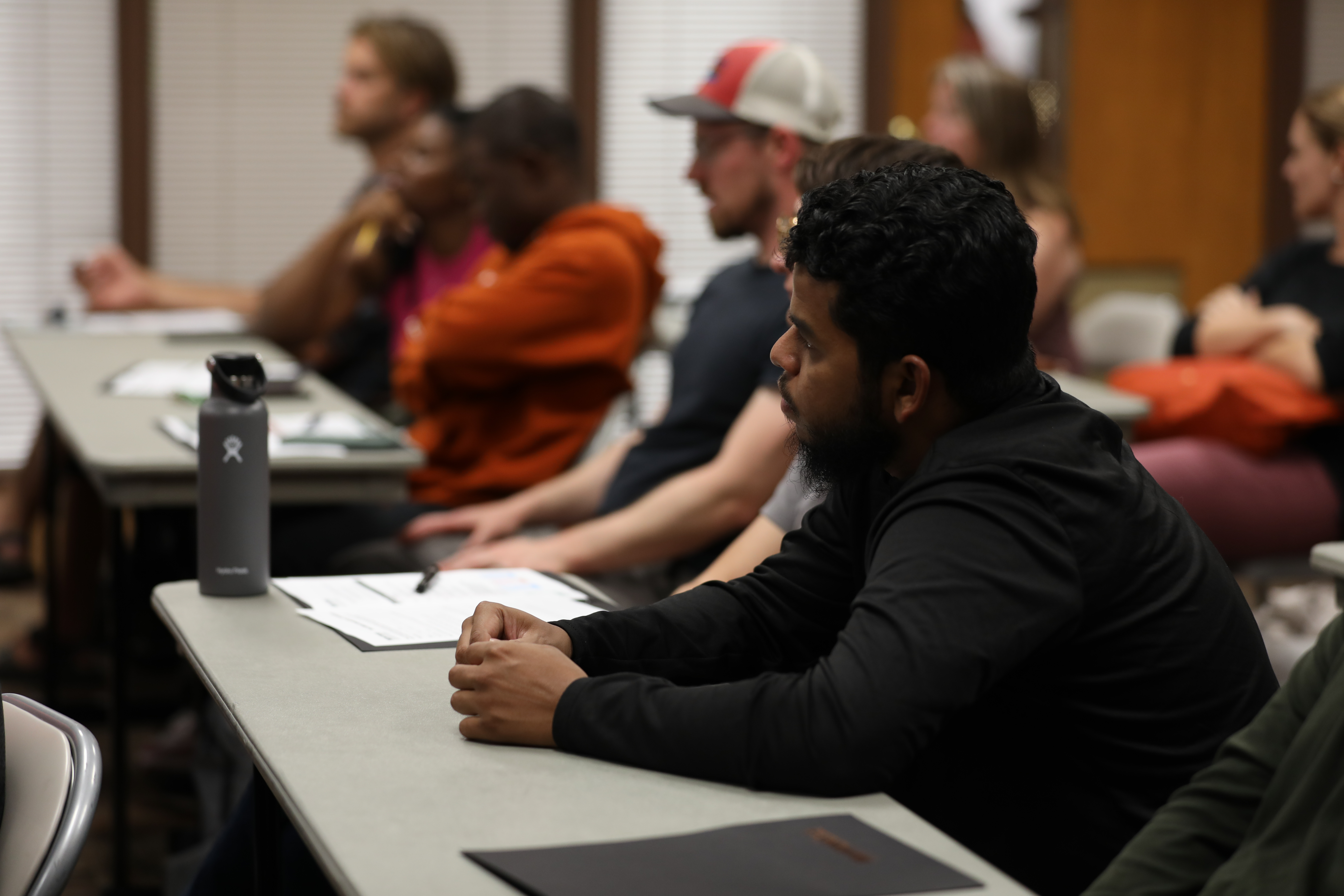
Graduate School Canvas courses are specifically designed for 1st semester, 2nd semester, and graduating students.
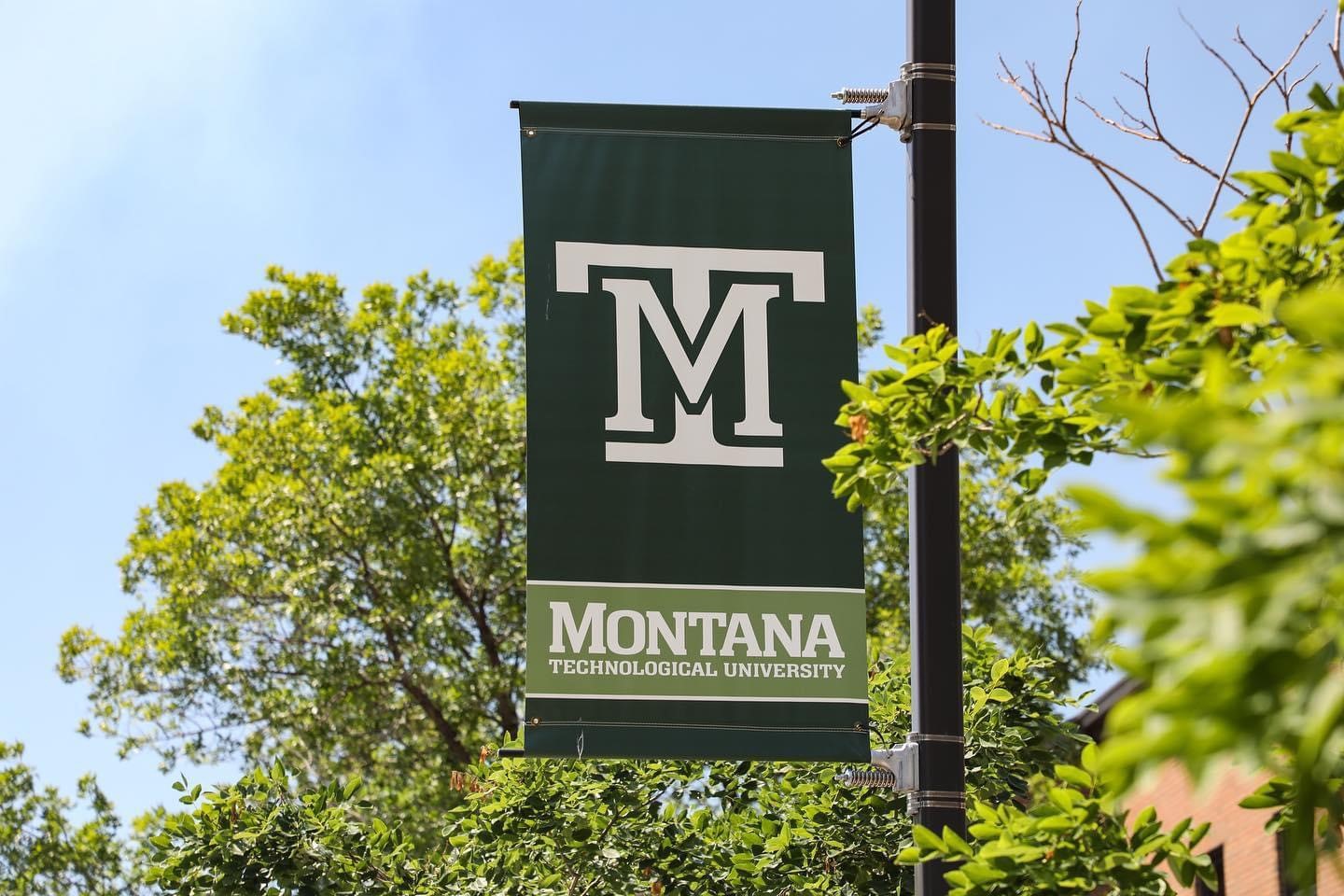
A mandatory Orientation is held for new on-campus and distance graduate students, the first week of the fall and spring semesters.
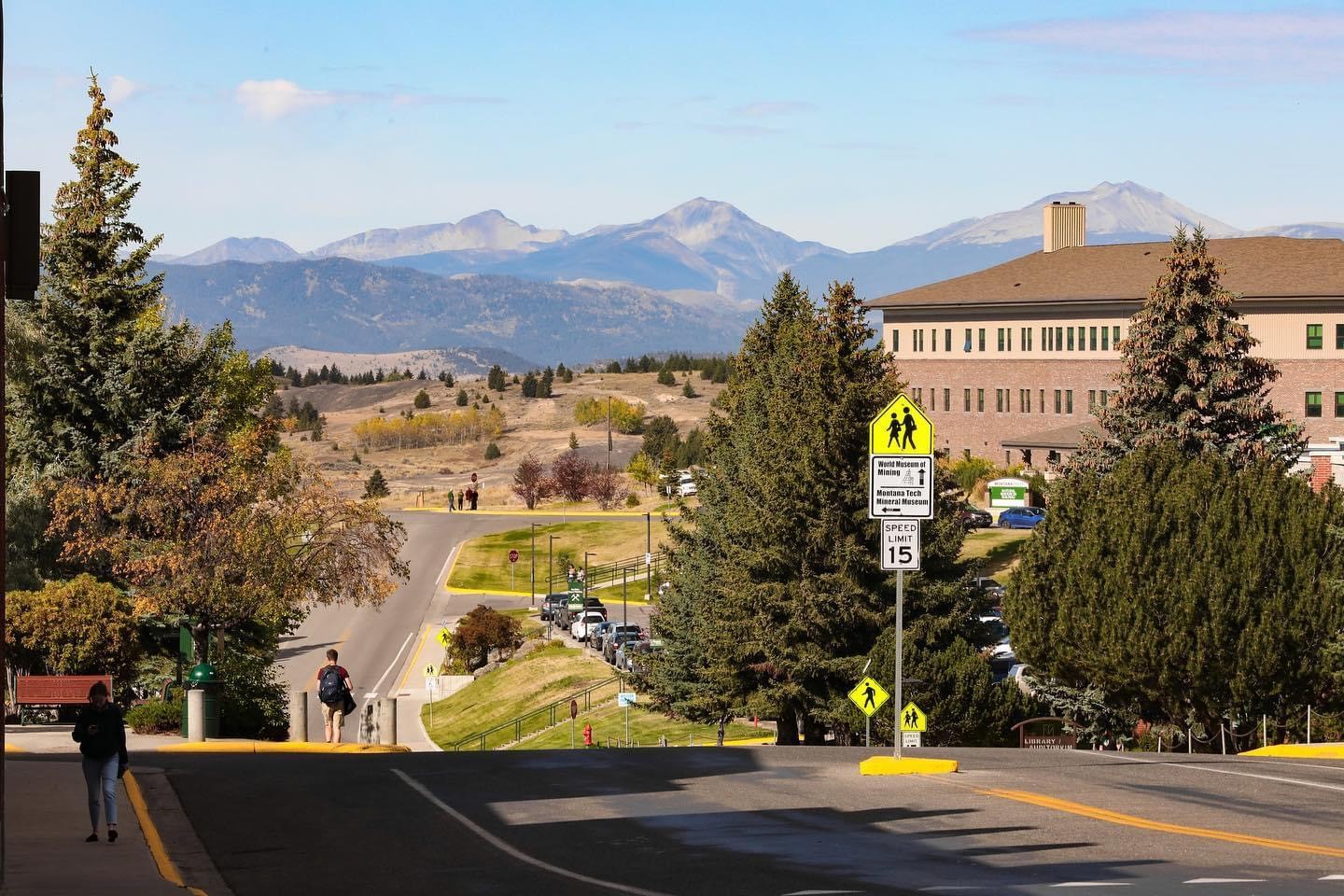
Meet the graduate school staff and discover how each of us can help throughout your journey.
We can answer your questions and help you get started.
MUS 210 & MUS 211
(406) 496-4781
GradSchool@mtech.edu